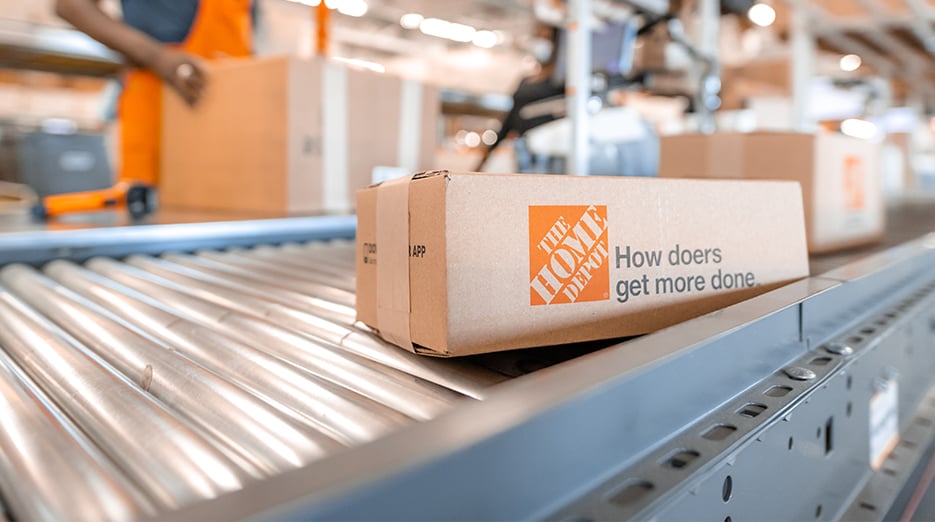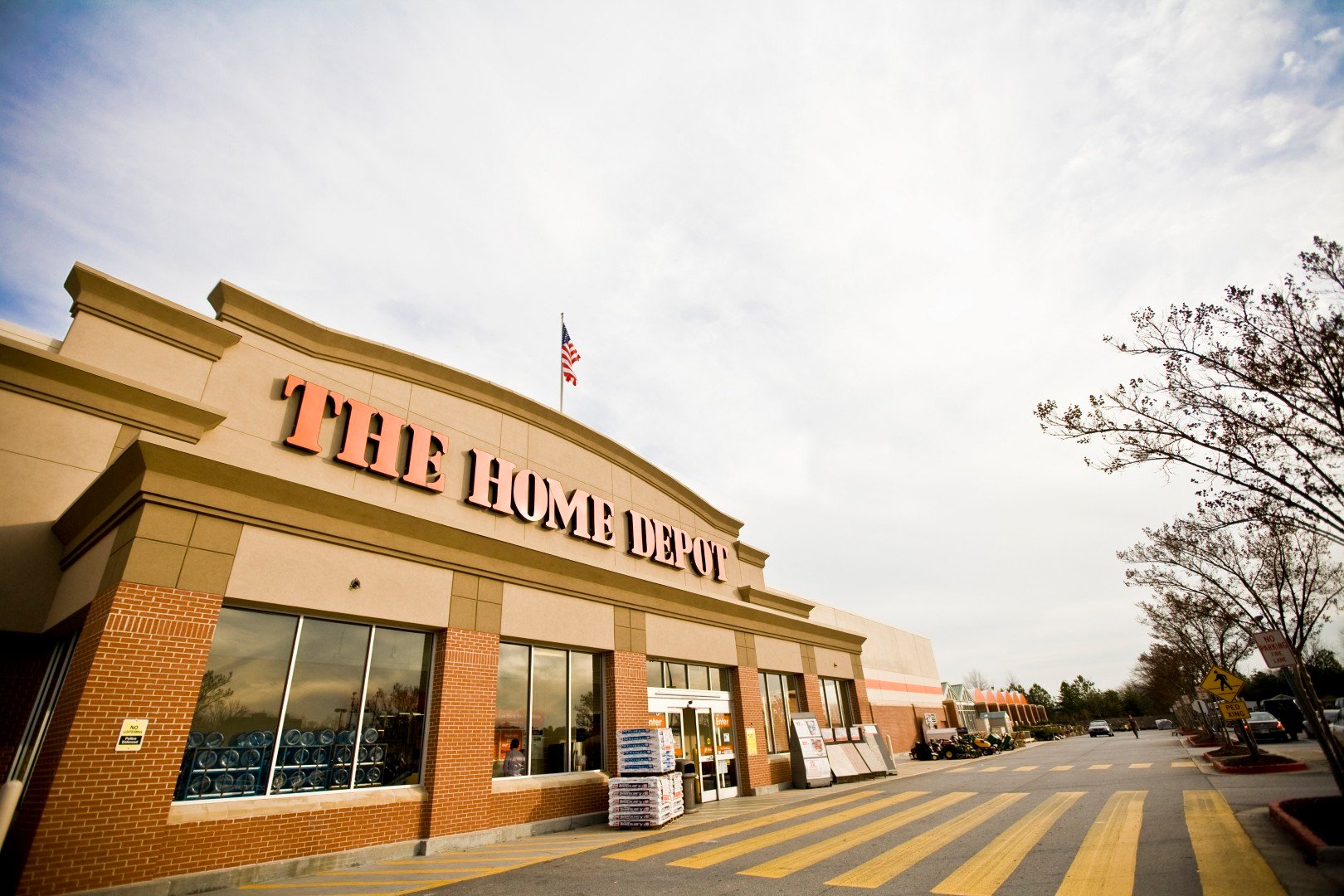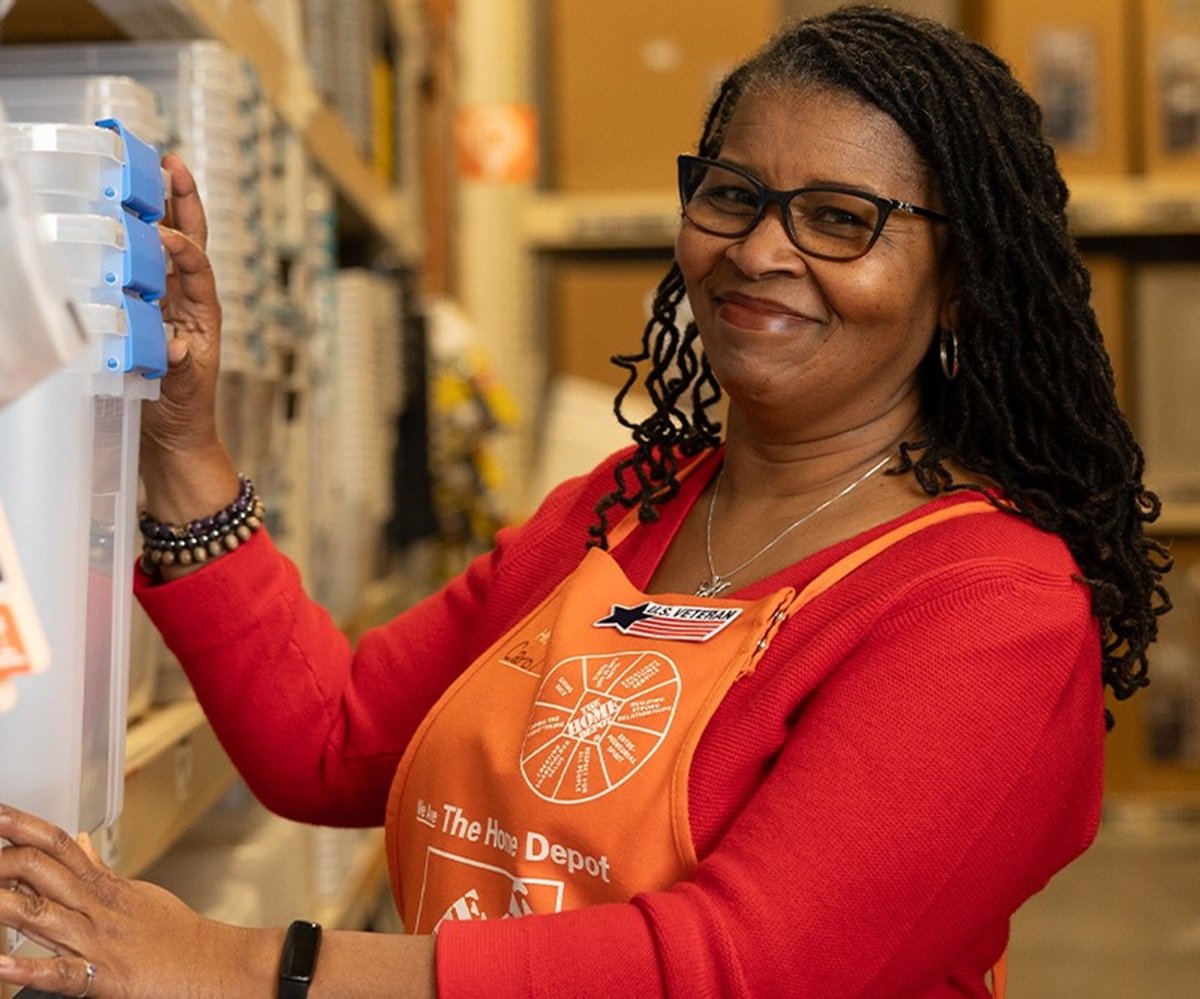Fast-growing diversified logistics operator XPO Logistics (XPO +0.29%) is suddenly the center of attention after it was reported that Home Depot (HD +0.23%) is considering buying the trucking giant if only to keep it out of the hands of Amazon.com (AMZN 0.10%), which was also rumored to be interested in acquiring it.
While none of the players confirmed or denied the speculation, shares of XPO have surged on the reports, and it's possible the logistics operator could become the center of a bidding war if both rumored suitors remain determined to buy this leading carrier.

Image source: XPO Logistics.
Playing spoiler
According to Recode, Home Depot executives held discussions among themselves about making a bid for XPO. It's understandable why Amazon would want the trucker as it is getting into big-ticket items like appliances and furniture, and it has already assembled an air fleet for delivery and is planning to build a new distribution center in Kentucky, so a last-mile delivery service to supplement or even replace UPS and FedEx makes sense. But why would the home improvement supercenter be interested?
Certainly preventing Amazon from getting its hands on the logistics specialist is one reason, but the amount of money that would be necessary to buy XPO's $9 billion business needs something a little more concrete than simply playing spoiler.
Home Depot, of course, is already a major retailer of appliances, which represent almost 8% of its $94.6 billion in 2016 net revenues. It is, in fact, the second largest appliance retailer behind Lowe's, which became the industry leader in 2013, and Best Buy is expected to supplant Sears Holdings as the third largest retailer when the final figures are tallied for last year.
No longer just a DIY hotspot
But Home Depot is looking forward to new opportunities beyond just its stores. At an analyst day conference last month, the DIY big box leader said it was looking for revenues in 2020 to be around $120 billion, a significant increase for a retailer that is expected to generate over $100 billion in sales for 2017.
It's also already a force to be reckoned with online as industry site eMarketer pegs it as the fourth largest e-commerce site with about $6.5 billion in online sales that are still growing in excess of 20% annually. Home Depot's third-quarter earnings report indicated e-commerce sales had already hit almost $5 billion through the first nine months of the year, a 21.6% increase. Perhaps more importantly, 60% of all of its sales whether in-store or online are influenced by a digital visit.
Untangling a logistical knot
Home Depot also told analysts it plans to spend $11.1 billion over the next three years on investments in its omnichannel efforts, which includes expanding delivery options, such as same-day and time-definite options, as well as expanding its shipping options in Canada and Mexico.
Moreover, it built a network of direct fulfillment centers capable of reaching 95% of the U.S. population in two days or less with parcel freight, and 30% of the population in one day. Yet it specifically noted its appliance delivery business is a stand-alone outside network that it's currently unable to leverage with other big, bulky deliveries. Acquiring XPO Logistics with all of its expertise in these areas would be a significant boost to solving that problem.
Yet as much as Home Depot might want to thwart Amazon's continued expansion, it's equally true the e-commerce king could outbid Home Depot. And strategically speaking, it may have much greater financial wherewithal to complete the deal as well as outlast any other suitor that might emerge. Walmart, for example, would be another reasonable potential buyer, as would UPS and FedEx themselves.
It's clear XPO Logistics is perfectly positioned to capitalize on retail's intense interest in the next stage of growth and it could become an even more richly valued prize if a bidding war suddenly breaks out.













